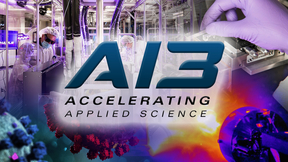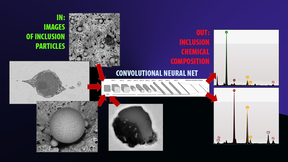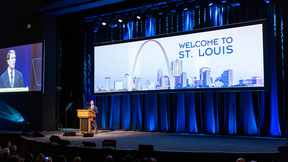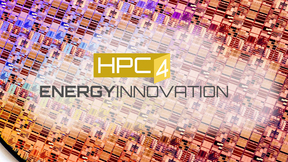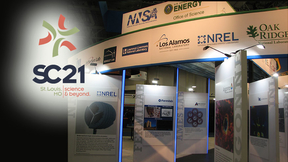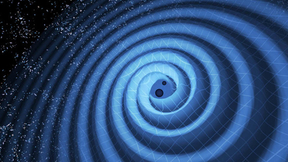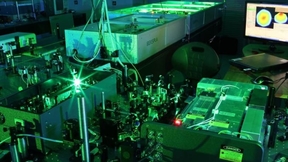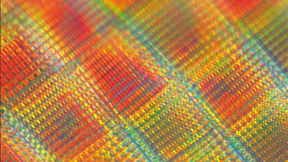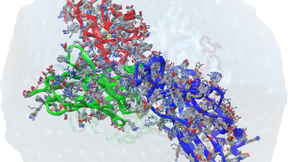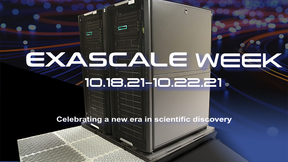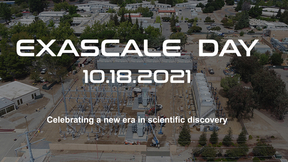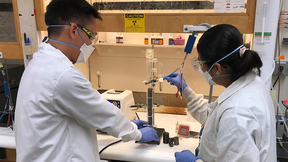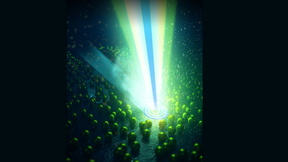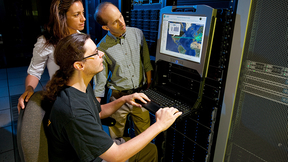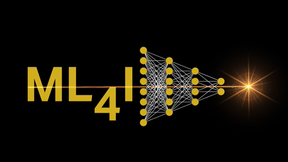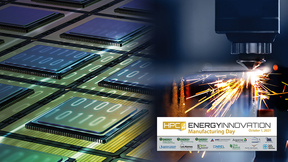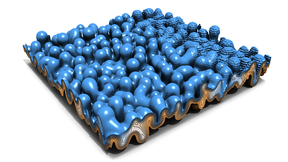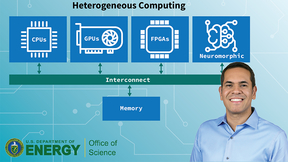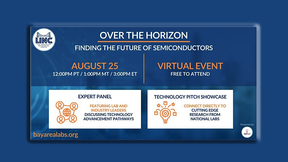Back
Lawrence Livermore National Laboratory (LLNL) has established the AI Innovation Incubator (AI3), a collaborative hub aimed at uniting experts in artificial intelligence (AI) from LLNL, industry and academia to advance AI for large-scale scientific and commercial applications. LLNL has entered into a new memoranda of understanding with Google, IBM and NVIDIA, with plans to…
A Lawrence Livermore National Laboratory (LLNL)-led collaboration targeted at using machine learning to reduce defects and carbon emissions in steelmaking is one of eight new projects receiving Department of Energy (DOE) funding through the High Performance Computing for Manufacturing (HPC4Mfg) Program. DOE’s Office of Energy Efficiency and Renewable Energy (EERE)…
It was a Supercomputing conference like none other before it. For the first time ever, the 2021 International Conference for High Performance Computing, Networking, Storage and Analysis (SC21) went hybrid, with dozens of both in-person and virtual workshops, technical paper presentations, panels, tutorials and “birds of a feather” (BOF) sessions. Under the ongoing specter…
A suite developed by a Lawrence Livermore National Laboratory (LLNL) team to simplify evaluation of approximation techniques for scientific applications has won the first-ever Best Reproducibility Advancement Award at the 2021 International Conference for High Performance Computing, Networking, Storage and Analysis (SC21). Newly instituted by the conference, the award…
The U.S. Department of Energy's (DOE) High Performance Computing for Energy Innovation (HPC4EI) initiative, managed by Lawrence Livermore National Laboratory, is seeking proposals for projects that can leverage DOE supercomputing to advance clean energy technologies. The fall 2021 solicitation targets industry partners for collaborations with DOE national laboratories that…
The scientific computing and networking leadership of the U.S. Department of Energy’s (DOE’s) national laboratories will be on display at SC21, the International Conference for High-Performance Computing, Networking, Storage and Analysis. The conference takes place Nov. 14-19 in St. Louis via a combination of on-site and online resources. The theme of this year’s…
The announcement that the Laser Interferometer Gravitational-wave Observatory (LIGO) had detected gravitational waves during the merger of two black holes sent ripples throughout the scientific community in 2016. The earthshaking news not only confirmed one of Albert Einstein’s key predictions in his general theory of relativity, but also opened a door to a better…
Lawrence Livermore National Laboratory (LLNL) scientists and engineers have collected three awards among the top 100 industrial inventions worldwide. The trade journal R&D World Magazine announced the winners of the awards, often called the “Oscars of invention,” during a three-day virtual ceremony — Oct. 19-21 — and on the magazine’s website. With this year’s results,…
Similar to grass stems, Lawrence Livermore National Laboratory (LLNL) scientists have created nanostrut-connected tube-in-tubes that enable stronger low-density structural materials. Porous materials with engineered stretching-dominated lattice designs, which offer attractive mechanical properties with ultra-light weight and large surface area for wide-ranging applications…
Lawrence Livermore National Laboratory (LLNL) has joined the international Human Vaccines Project (HVP), bringing Lab expertise and computing resources to the consortium to aid development of a universal coronavirus vaccine and improve understanding of immune response. The HVP is a nonprofit, public-private partnership with a mission to decode the human immune system and…
Though the arrival of the exascale supercomputer El Capitan at Lawrence Livermore National Laboratory (LLNL) is still almost two years away, teams of code developers are busy working on predecessor systems to ensure critical applications are ready for Day One. Delivered in February, the “RZNevada” early-access system is providing experts at the National Nuclear Security…
A supercomputer doesn’t just magically appear, especially one as large and as fast as Lawrence Livermore National Laboratory’s upcoming exascale-class behemoth El Capitan. At peak usage, El Capitan — projected to be the world’s most powerful computer by 2023 — will require about as much energy as a small city, so it takes years of planning, infrastructure upgrades and an…
Lawrence Livermore National Laboratory (LLNL) scientists and engineers have posted another banner year securing major grants through the Department of Energy’s (DOE) Technology Commercialization Fund (TCF). “I think the Laboratory did very well again, reflecting a variety of types and approaches to our research and development projects,” said Rich Rankin, the director of…
While laser-based 3D printing techniques have revolutionized the production of metal parts by greatly expanding design complexity, the laser beams traditionally used in metal printing have drawbacks that can lead to defects and poor mechanical performance. Researchers at Lawrence Livermore National Laboratory (LLNL) are addressing the issue by exploring alternative shapes…
The Department of Energy’s National Nuclear Security Administration’s (DOE/NNSA’s) Lawrence Livermore National Laboratory (LLNL) announced the awarding of a subcontract to Dell Technologies for additional supercomputing systems to support NNSA’s nuclear deterrent mission. In partnership with Los Alamos National Laboratory (LANL) and Sandia National Laboratories (SNL), the…
LLNL held its first-ever Machine Learning for Industry Forum (ML4I) on Aug. 10-12. Co-hosted by the Lab’s High Performance Computing Innovation Center (HPCIC) and Data Science Institute (DSI), the virtual event brought together more than 500 participants from the Department of Energy (DOE) complex, commercial companies, professional societies and academia. Industry…
To celebrate Manufacturing Day 2021, the High Performance Computing for Energy Innovation (HPC4EI) initiative will hold a special webinar on Oct. 1 featuring speakers from the Department of Energy (DOE), presentations by DOE scientists and students and virtual tours. The free event runs from 7:30 a.m. to 12:30 p.m. PDT and is open to all. The webinar’s plenary session…
A Lawrence Livermore National Laboratory-led effort in data compression was one of nine projects recently funded by the U.S. Department of Energy (DOE) for research aimed at shrinking the amount of data needed to advance scientific discovery. LLNL was among five DOE national laboratories to receive awards totaling $13.7 million for data reduction in scientific applications…
A project involving researchers at Lawrence Livermore National Laboratory (LLNL) and national lab and academic collaborators has received U.S. Department of Energy (DOE) funding as part of an effort to adapt scientific software for next-generation high-performance computing (HPC) systems. The project, “ComPort: Rigorous Testing Methods to Safeguard Software Porting,” will…
Lawrence Livermore National Laboratory (LLNL) and its three partner national labs in the Bay Area Lab Innovation Networking Center (LINC) will offer a webinar about the future of semiconductors and advanced materials on Wednesday, Aug. 25. The two-hour virtual Zoom webinar, called “Over the Horizon” and set to start at noon Pacific time, is primarily targeted at Bay Area…

